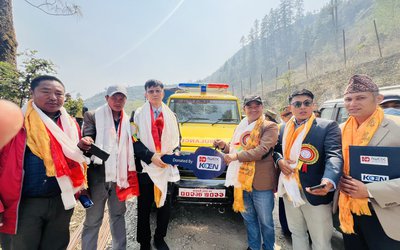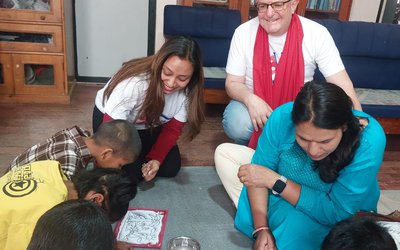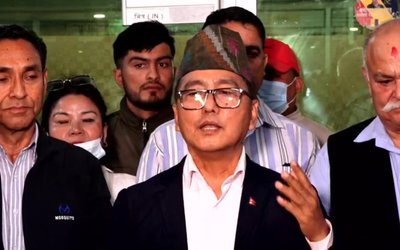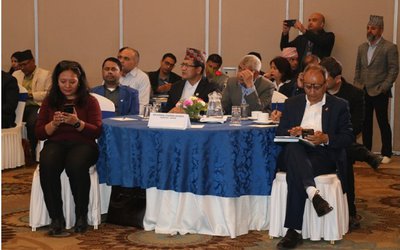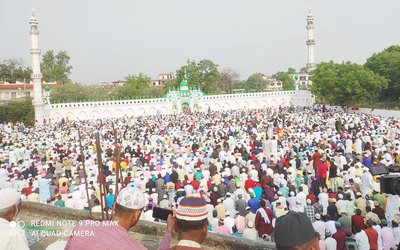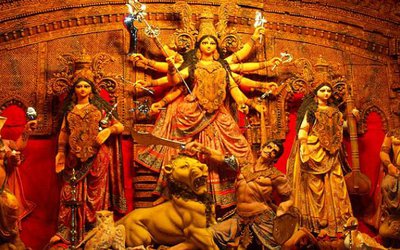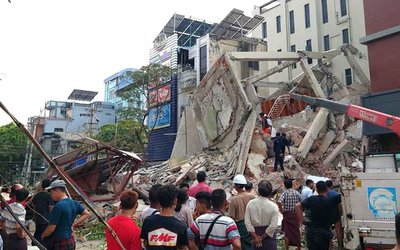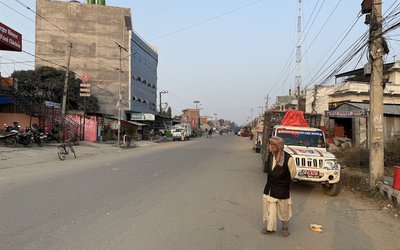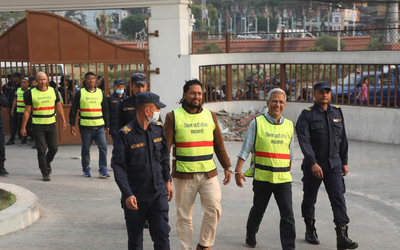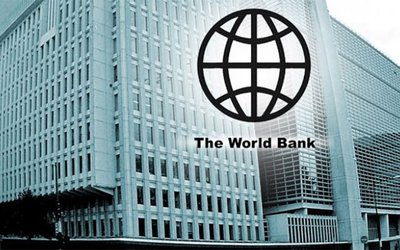UCPN-Maoist faction led by Biplav or Netrabikram Chand attacked Save the Children's office in Sindhupalchwok. Similarly, cadres of the same faction attacked the office of World Vision International Nepal in Nuwakot damaging vehicles and materials stored to deliver for the earthquake victims.
These two incidents occurred just two days before the change of leadership at the Association of International NGOs in Nepal (AIN). AIN’s General Assembly elected a new six-member Steering Committee (SC), and elected Dr. Prabin Manandhar as the Chair, Liz Satow as the Vice Chair and Kim West as the Treasurer.
The newly elected members include Meeta S Pradhan, Mona Shrepa, Kim West, Tej Hari Ghimire, Nirmala Sharma, and Douwe Dijkstra. Similarly, other continuing members include Dr. Prabin Manandhar, Delailah (Lala) Borja,Udaya Manandhar, David Smith and Liz Satow.
According to a press release issued by Reshma Shrestha, AIN Chair Dr Manandhar said the new SC will work in close coordination with the government, member INGOs, civil society, media and other stakeholders to support the government’s efforts towards recovery, reconstruction and sustainable development.
The two incidents involving a radical Maoist group indicate that further attacks against humanitarian organizations based in various districts, working for the poor and vulnerable population, are likely.
Following the attack on the offices of the two INGOs working in earthquake devastated areas, Ministry of Home Affairs issued directives to District Administrative Offices and Nepal Police to remain alert and vigilant on the activities of Biplav led Maoist group. These are some of the challenges the newly elected AIN’s leadership have to face immediately.
New Opportunities
There are also some new opportunities for the organizations following the decision of Nepal Reconstruction Authority to allow NGOs and INGOs to work in the reconstruction phase.
NRA, which earlier barred NGOs and INGOs from reconstruction, has changed its policy because only less than one-tenth of the affected households had received cash grants for building houses.
As the earthquakes last year damaged 9,353 schools in 59 districts across the country, more than 150 NGOs/INGOs have acquired permission from the Ministry of Education to reconstruct school buildings damaged in the earthquakes in various parts of the country.
An NGO or INGO that is so engaged is now permitted to provide reconstruction grants of Rs 200,000 each for a minimum of 50 households, according to the Directives for Mobilizing NGOs for Reconstruction and Rehabilitation 2072, which was endorsed by the National Reconstruction Authority (NRA).
"NGOs have to hand over the entire amount of Rs 200,000 to the households," reads Clause 13 of the Directives. "Their administrative overhead cost should be on top of the housing grants they provide," said Ram Prasad Thapaliya, spokesperson of NRA.
The Directives have opened the way for NGOs and INGOs to work in reconstruction and rehabilitation. They can only work for clusters of a minimum of 250 houses in providing the housing grants. An INGO should have funds of at least Rs 50 million lined up for housing grant distribution to households.
An NGO or INGO has to first apply at NRA with a proposal to work for reconstruction, which includes providing housing grants and constructing school buildings and health posts. They have to follow all the rules and regulations after getting the permission and signing an agreement with NRA. They cannot collect funds once such an agreement is signed..
The Association of International NGOs (AIN), formed by INGOs working in Nepal in September 1996, is an important network in the development sector of Nepal as members have been implementing various people-centered development programs throughout the hills, mountains and Terai areas.
AIN has come together to promote mutual understanding, exchange information and share experiences and learning in Nepal for more effective collaboration.
At present the AIN comprises 134 INGOs, working on a wide-range of issues and sectors to contribute to development efforts in Nepal.
Over the years INGOs have played a crucial role as key stakeholders and partners in the development of Nepal. The new directives have opened opportunities to work for the betterment of the earthquake victims.

Keshab Poudel
Poudel is the editor of New Spotlight Magazine.
- FM Dr. Deuba’s India Visit: Mission Aborted
- Mar 26, 2025
- AMBASSADOR MAEDA TORU: Warm Regards
- Mar 24, 2025
- PRO-MONARCHY MOVEMENT: Rising Dissatisfaction
- Mar 23, 2025
- Dr. PRABIN MANANDHAR: Person With Humility
- Mar 16, 2025
- US SUSPESION OF GRANT: Impact On Nepal
- Mar 10, 2025
